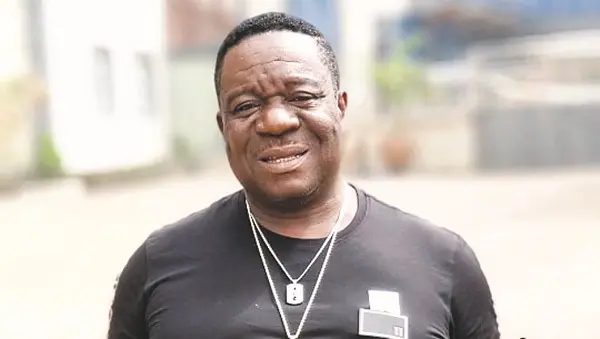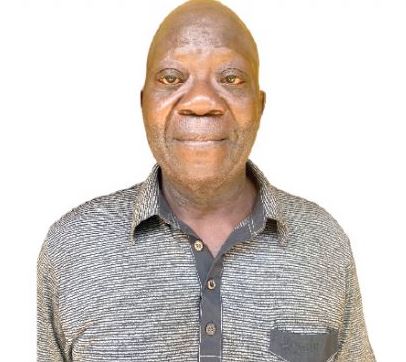Is it all over for Julian Assange?
Sam Hawley: For around a decade, Julian Assange has tried everything to avoid the position he finds himself in now: on the cusp of being bundled onto a plane to the United States to face espionage charges that carry a jail sentence of up to 175 years. His fate now rests with a couple of judges in London who will decide whether he can appeal against his extradition to America. Today, media freedom advocate Peter Greste unpacks the case for us. I’m Sam Hawley on Gadigal land in Sydney. This is ABC News Daily.
Protesters: Free Julian Assange! Free Julian Assange!
Sam Hawley: Peter, Julian Assange’s supporters have been gathering outside a court in London again. They’ve been fighting for a really long time against his extradition to the US, haven’t they? A long time.
Peter Greste: Yes they have. I mean, it’s literally been years.
Protesters: There’s only one decision. No extradition!
Peter Greste: And not just his extradition to the US, but also fighting for his freedom over all. It looks as though, I mean, this clearly is the very end of the process. If they can’t win now, then there doesn’t seem to be a great deal of hope for Julian.
Stella Assange, Julian Assange’s wife: Julian is a political prisoner and his life is at risk.
London protester: And we need people like Assange to come out and tell the truth, you know, expose what’s going on.
London protester: For me, he’s a hero, you know, he’s an advocate for truth, peace, justice.
Sam Hawley: Peter, I think before we get into what’s unfolded inside the High Court this week, it really is good to step back and have a quick look at what landed Julian Assange here. It’s been a real saga, hasn’t it?
Peter Greste: Yes, it has. Julian, of course, established Wikileaks, which was set up to publish documents passed to the organisation by leakers revealing secrets that governments really wanted to keep hidden.
News Report: For decades, US diplomats have operated under a cloak of discretion. But now, these Wikileak computers are busily serving up their secrets for whoever wants to read them.
Peter Greste: Obviously, that was something that put him in the eye of a lot of authorities, but particularly when he published a trove of documents about the conduct of US forces and the way they’d been running the wars in Afghanistan and Iraq.
News Report: The scale of the leak is daunting. Already, they’ve shown US authorities failed to investigate reports of torture, rape and murder by Iraqi police and soldiers.
Peter Greste: Julian published unredacted trove of documents under fairly controversial circumstances. But the US accused him of effectively spying on the American authorities, of revealing national security secrets, of putting a lot of their sources in grave danger.
Hillary Clinton, former US Secretary of State: The United States strongly condemns the illegal disclosure of classified information. It puts people’s lives in danger, threatens our national security and undermines our efforts to work with other countries to solve shared problems.
Peter Greste: Julian, of course, denies it. He says that there was a clear public interest in publishing the documents that exposed some pretty horrific behaviours by the US forces, and in particular, the now infamous ‘collateral murder’ video, which showed a US helicopter gunship attacking a group of civilians, killing quite a large number of them, including two journalists from Reuters.
Sam Hawley: US authorities also accused him of conspiring with the American army intelligence analyst, Chelsea Manning, to hack into a Pentagon computer. So the charges are really serious, they’re espionage.
Peter Greste: Yes it’s the use of those espionage charges, it’s the use of the Espionage Act, which I think is, a lot of people, including myself, are finding quite troubling. This is the first time that the US has ever used the Espionage Act for documents that were published in the public interest. It was President Obama who decided not to press charges against Julian Assange under the Espionage Act, because he was concerned about the potential impact that that would have on press freedom in the US. But now we see the charges going ahead, and there are a lot of people, including myself, who are very concerned about what that might mean for journalism.
Sam Hawley: And Peter, for a long time, of course, people will remember, he hid away, Julian Assange, in the Ecuadorian embassy in the centre of London. He entered the embassy in 2012, and a lot of us will remember the images of him standing on the balcony talking to his supporters who’d gathered on the streets.
Julian Assange: But while this immoral investigation continues, and while the Australian government will not defend the journalism and publishing of Wikileaks, I must remain here. True democracy is the resistance of people armed with the truth against lies.
Sam Hawley: He entered the embassy because he was facing unrelated allegations of sexual misconduct and rape in Sweden. Those charges were later dropped, so it’s a little confusing. But just explain to me, why did he go in there and stay in there for so long?
Peter Greste: Well, because he faced extradition, as you said. It was because he felt he wasn’t able to get, or he claimed he wouldn’t be able to get a fair trial, that the charges themselves were also related or politically motivated. This was an attempt to get at him and his organisation, Wikileaks. He always insisted that the charges were baseless and denied them vehemently, but felt that he couldn’t leave the embassy because of the risks of being arrested and deported. He was also concerned that that would be another way of being deported to the United States through Sweden.
Sam Hawley: Seven years after he entered, the Ecuadorians really gave him up. They’d had enough of him, I think, and he was dragged out of that embassy in April 2019.
News Report: He’d long dreamt of leaving the embassy, but not like this.
Julian Assange: They must resist! UK must resist!
News Report: Yelling “The UK must resist” Julian Assange was dragged from his diplomatic bolthole.
Sam Hawley: And he was, of course, arrested, and that’s when he entered Belmarsh Prison, the high-security prison in London.
Peter Greste: Yeah, that’s right, and that’s really when this latest process really began. Julian has been fighting extradition ever since then, insisting that, as we’ve been discussing, insisting that he’s done nothing wrong, he’s done nothing other than publish information in the public interest, and arguing that there is no way that he can get a fair trial in the United States under the current circumstances.
Sam Hawley: OK, so that does bring us to today and this High Court challenge. You’ve said this is really his last chance. Just explain that for me a bit more. Why is this the end of the road for Julian Assange?
Peter Greste: Well, because what’s happening is that he’s basically applying for leave to appeal. If he cannot appeal, if that leave is denied, then he will be deported. The only other alternative is, frankly, paper thin, and that’s to go to the European Court of Human Rights and ask them to stay the extradition on human rights grounds. And so it looks as though if he cannot win this, there is a very good chance that within a matter of days or a week or so he could be on a plane to the United States and face those espionage charges.
Sam Hawley: His wife, Stella, she was on ABC’s 7.30 on ABC TV. She argues that it is a case of life and death because we’re told he’s not in good health and she doesn’t think he would survive any jail time in the United States.
Stella Assange, Julian Assange’s wife: He’s going to be put in the deepest, darkest hole in the US prison system and it will be much harder for him to be freed. He cannot survive more time in prison. He needs to be released and he needs to be released now.
Sam Hawley: In the court, Peter, his lawyers argue that he’s a journalist, that he deserves protection, and they argue that he would never receive a fair trial in America and that the case against him is politically motivated. Of course, the Americans argue that he was responsible for one of the largest compromises of classified material in American history. What do you think? Would he survive if he was extradited to the United States?
Peter Greste: Look, Julian is clearly in poor health. The reason he’s not in court and not even following the trial, not all the hearings from his prison cell, is because he’s in very poor health. An earlier judge in the UK ruled against his extradition because she said that he would quite likely die in US custody and that it was against his human rights. So it’s clear that for him to be extradited is incredibly risky.
Sam Hawley: So, Peter, we’re waiting, of course, on the judge’s decision, which, as you mentioned, could come in the next few weeks. We’ve talked a lot about the concerns about his health. Is there any chance, do you think, at this point, that the UK could actually intervene against his extradition? Is the mood in the UK changing at all?
Peter Greste: It’s possible. The Home Secretary, I think, still has the power to rule against his extradition, to withdraw the case. But I think we need to remember that both the UK and the US governments are currently in campaign mode right now. Clearly, the government is operating in campaign mode. They’ve got a very strong eye on the polls. It is a very, very conservative government at the moment and I suspect that any kind of compromise in Julian’s case is going to be seen as politically difficult for the British government right now. I also think the US is in a similar situation. Joe Biden is facing, of course, a very strong conservative challenge from Donald Trump. It’s very difficult for either the British government or the US governments politically to intervene in this case.
Sam Hawley: What about Australia, then? The Federal Parliament has passed a resolution earlier this month calling for Julian Assange’s return here. The Prime Minister says diplomats are working really hard on this.
Anthony Albanese, Australian Prime Minister: I have raised at the highest levels with the United States and the United Kingdom Mr Assange’s case. I have put the view very clearly privately, as I have publicly, that enough is enough. It’s time Julian Assange was brought home.
Sam Hawley: But is there really anything Australia can do at this point?
Peter Greste: Well, Australia can do what it’s been doing and that’s adding pressure to it, but it has no legal standing. There is some diplomatic pressure that it can bring to bear, but I think in the greater scheme of things, this is clearly an issue between the US and the UK. I think we’ve seen public opinion shift quite substantially behind Julian Assange, whatever people think about his behaviour. I think a pretty substantial majority of Australians believe that this has gone on for long enough and that he needs to come home. But beyond that kind of moral pressure, there are no… there are very few formal diplomatic or legal levers that the Australian government can pull.
Sam Hawley: Peter, simply put, I suppose it comes down to an argument over whether Julian Assange is a journalist of need of protection or a hacker who stole classified information from the United States.
Peter Greste: Well, yes, it is, although I think the argument about whether Julian Assange is or is not a journalist has become a bit of a distraction in this. What Wikileaks published was clearly in the public interest. It forced some very difficult conversations about US operations, US tactics in Afghanistan and Iraq. The way in which the Espionage Act is being used has very serious implications for journalism and press freedom more broadly. And I think for those reasons, it is time to bring Julian home to end this case and move on.
Sam Hawley: And if that doesn’t happen, what are the effects going to be for journalism and press freedom? You know, how problematic can that become?
Peter Greste: It raises very serious challenges. One of the big issues here is the way in which the US government has gone after someone who is outside of their country on espionage charges, and that puts other journalists who are working on investigations into the behaviour of US forces outside of their country, it puts them in grave danger. It has a very serious chilling effect on the work that journalists are able to do and their ability to protect their sources.
Sam Hawley: Peter Greste is a media freedom advocate and a professor of journalism at Macquarie University. If you’ve been enjoying the podcast, please don’t forget you can make us a favourite on the ABC Listen app. This episode was produced by Nell Whitehead, Bridget Fitzgerald, with audio production by Sam Dunn. Our supervising producer is David Coady. I’m Sam Hawley. ABC News Daily will be back again on Monday. Thanks for listening.




